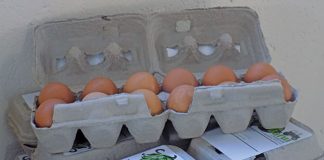Speaking at the recent Agriculture, Forestry and Fisheries Trade Development Strategy conference, Ernst Janovsky, head of Absa AgriBusiness, said fruit framers could afford to paint their sheds this year due to a good crop and a weak currency. “But the exchange rate will blow out if politics continue as they are. This will cause a lockdown of the country, because we’ll only be rich within our own borders. Everything outside SA will be too expensive and will drive inflation and interest rates higher.”
Janovsky expected the exchange rate to stabilise at R10/ US$1 this year. “The exchange rate will remain weak until about three months after the national elections because of the expected radical statements and demands from the labour sector,” he said. “We have political stability in that we’re not at war, but there is no consistency in policies. And this is the one thing we really need to grow the economy. If you want people to invest you need government to say, ‘Here are my policies, this is where I am going’, and then stick with it for the long term. It can’t change every time there’s a Mangaung.”
Janovsky noted that energy prices were killing profits across SA and that the country needed to draw in capital to increase supply. But this wasn’t possible in an unstable policy environment. He said that with farmers being price-takers on both ends of the market, the only way to manage profit was by forward contracting and making use of futures and derivatives. “However, the way in which the Competition Act is implemented means we’re losing information, as there is no transparency. This makes it difficult to manage price volatility.”
Janovsky said long-term statistical analysis showed SA was due for a major drought in the next 30 years. “We need to start building capacity now to bail out farmers who will go bust as a result of droughts.” Hortgro CEO Anton Rabe said droughts were not the only climate problem. “We see huge problems with floods as a result of climate change. We don’t have the proper systems in place to help farmers. We can’t wait five years after a flood and still not receive help.”











